Most moms have heard about the importance of fine motor skills in their child’s development but did you know that fine motor development starts as early as 3 months of age?
The importance of fine motor activities is all too often overlooked for infants.
Understandably, most parents (especially first-time moms and dads) are focused on making sure the baby builds gross motor skills like crawling and walking.
But research tells us that babies who begin work on fine motor control earlier in life are smarter and more organized than their peers.
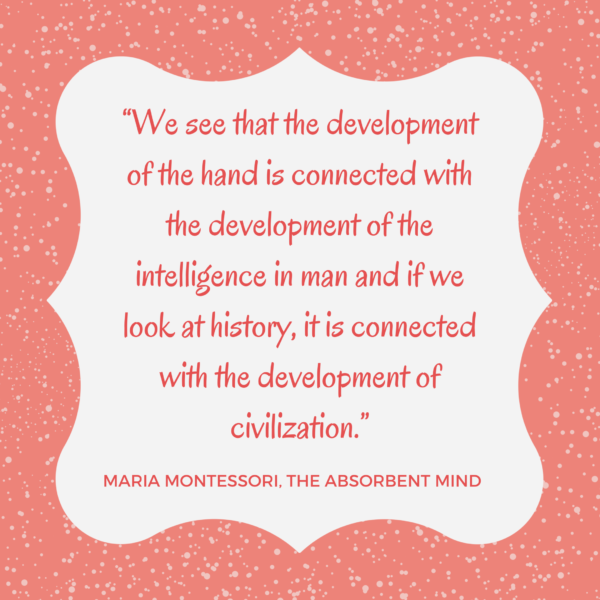
That means that parents who wait until their child is 3 or 4 years of age before making an effort to build fine motor skills could actually be harming their child’s lifelong development!
If your baby is still an infant and you’re already looking for ways to build those fine motor skills, then kudos! You’re ahead of the game.
In this guide, I’ll cover everything you need to know about fine motor skills, what they are, why they matter, and how to help your child develop them early!
What exactly are “Fine Motor Skills?”
Fine motor development is the development of the small muscles (often in your child's hands). These hand muscles are what allow us to hold a fork, pick up objects, write with a pencil, etc.
Experts believe that fine motor skills are connected to several other areas of development, especially our executive function skills which help us organize and prioritize things.
Fine Motor Skill Development In Babies
Although children all develop at different rates, there is a sequence and a general timeline to the way that a baby’s small motor skills will develop.
At the earliest stages, you may not even realize that your baby is developing the building blocks of fine motor just by doing everyday activities like reaching, clapping, wiggling fingers, etc.
The basic sequence looks something like this:
Step 1- Whole Arm
Baby will begin strengthening the muscles in his shoulder and arm by attempting to control their movements.
Step 2- Whole hand
Baby will attempt to control the smaller muscle groups of his hands by wiggling fingers, opening and closing his hand, and eventually grasping objects with all fingers.
Step 3 – Pincher Grip
Baby will begin building hand-eye coordination by using his thumb and index finger to pick up small objects.
At each stage, baby will build on skills that were developed in the last stage.
The great part about the Montessori- Style of learning is that many of the day-to-day tasks and life skills that you will be teaching your child will help them develop these fine motor movements naturally.
But while your baby is still an infant, you may have to be a bit more intentional about the play experience.
You'll need to incorporate toys and activities into baby's day that help with physical development. Building strong fine motor skills is just as important as teaching them to crawl or walk!
The fine motor activities you can do with infants are usually pretty fun and entertaining for them!
Small Motor Activities for 0-3 Months of Age
As a newborn, your baby’s movements are uncontrolled and their hands are usually in a fisted position.
You’ll notice that when their hand is open and something is placed in their palm, they automatically grip.
This is called the Palmar Grasp or Palmar Reflex. If this reflex isn’t present, it may be a sign of a defect and is actually tested by the doctor or midwife right after your baby is born.
During this early stage, you just want to practice grasping (it doesn’t have to be intentional to be working their muscles), and give them opportunities to swat at things.
Their fine motor skills and gross motor skills (which focus on large muscles) are interconnected so doing the tummy and floor time activities suggested in my post here will help build their chest and arm muscles in order to be able to move their arms and motivate them to grasp things.
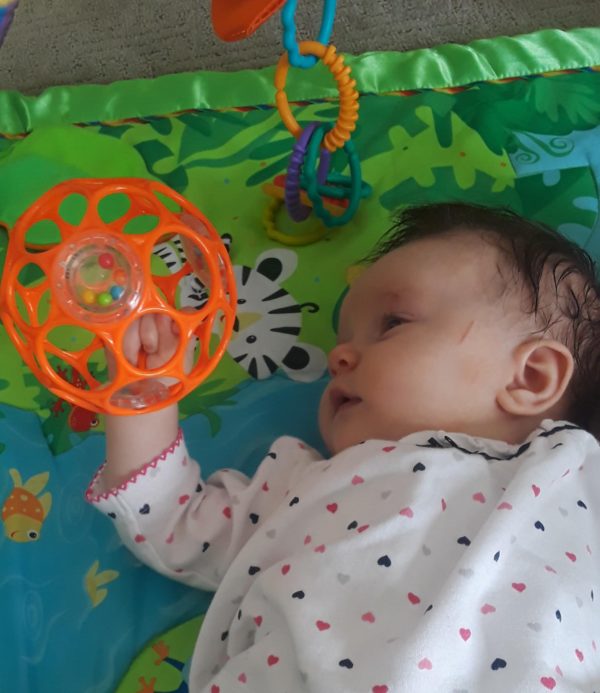
- Montessori mobile
- Play gym – hang different exciting items
- Rattles and other grasping toys (tip: to get them to open their fist, rub the back of their palm)
- O ball – this toy is fantastic for grasping!
- Teething toys – ones that are easy for babies to grasp.
Small Motor Activities for 3-6 Months of Age
Over the next few months, the palmar reflex will gradually go away, and their hand/arm movements will become more intentional. They will go through so many small fine motor developments during the next few months.
Letting go of things, picking them up, transferring a toy from one hand to the other are all signs that your baby’s fine motor skills are on track.
Here are some fine motor activities for infants you can introduce once they start having more hand control:
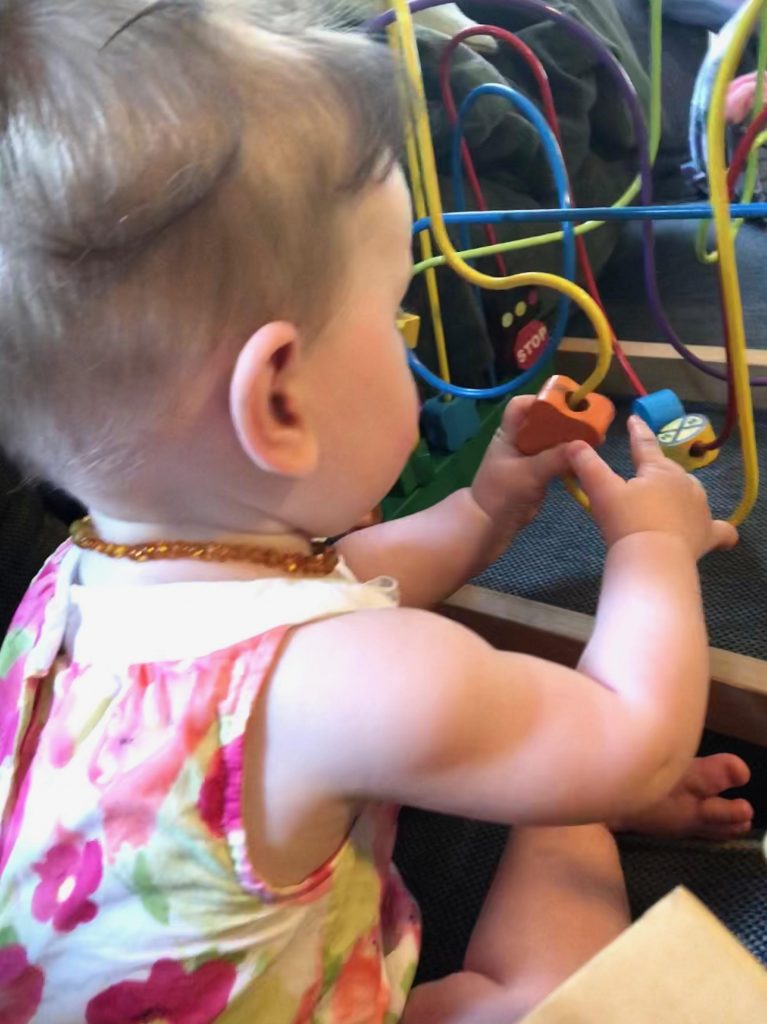
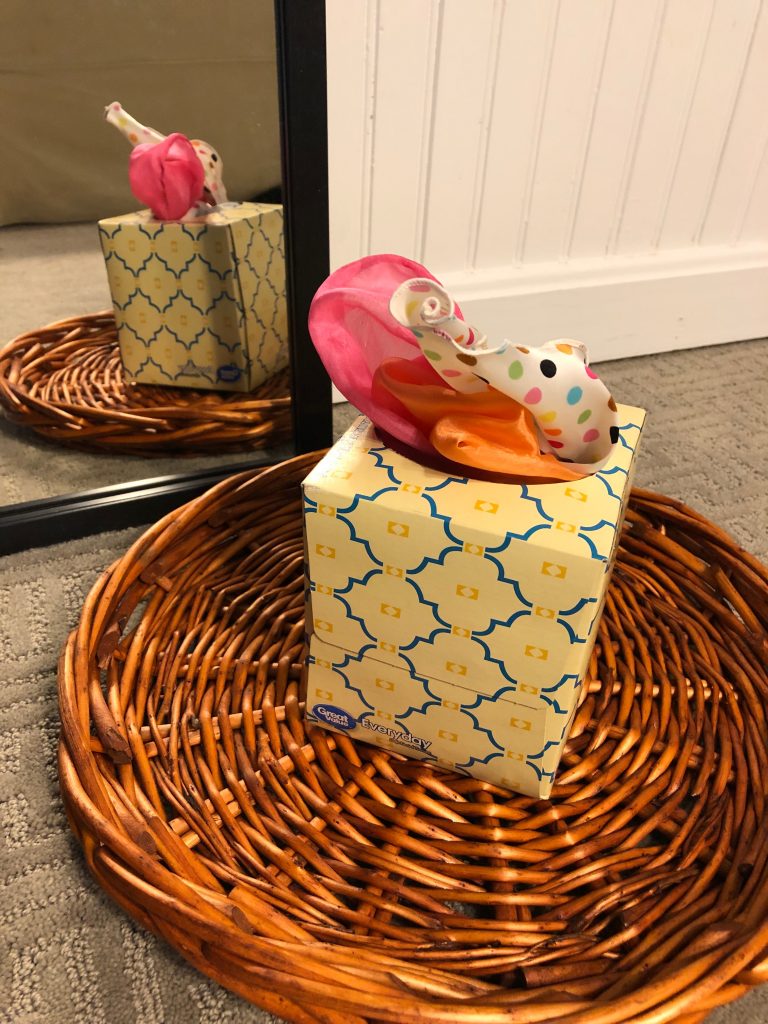
- Silks or scarves in a tissue box, wipe container or O ball
- Music – clap your hands, musical instruments, songs with hand movements (like “The Itsy Bitsy Spider”)
- Banging on pots and pans
- Bead maze (they may not be able to move beads up and down yet, but it’ll still be great fine motor practice)
- Sign language – introduce Baby Sign Language or ASL to your baby early
- Pulling container (I got this idea from Busy Toddler and made one out of an oatmeal container)


Fine Motor Acitivities for 6-9 Months of Age
The development of the pincer grasp is an exciting fine motor skill milestone. The pincer grip is using the tips of the thumb and pointer finger to pick up small items
Generally, they develop this around 8-10 months but really they can develop it anywhere in the second half of their first year, every child is different.
If they haven’t by the time they are reaching their first birthday you may want to discuss it with your pediatrician, it’s likely that your child may need to work with an occupational therapist to work on the development of fine motor skills.
Once they get a little stronger and develop their pincer grasp, these activities will be fun to introduce:



*the following are sponsored links*
- Shape sorter
- Finger paint
- Tape things down on table or highchair for them to pull up
- Puzzles
- Books – turning pages, lift and flap books
- Object permanence box or ball drop
- Pipe cleaners in colander
- Put things in a whisk for them to pull out
- Have them place things/take things out of any container
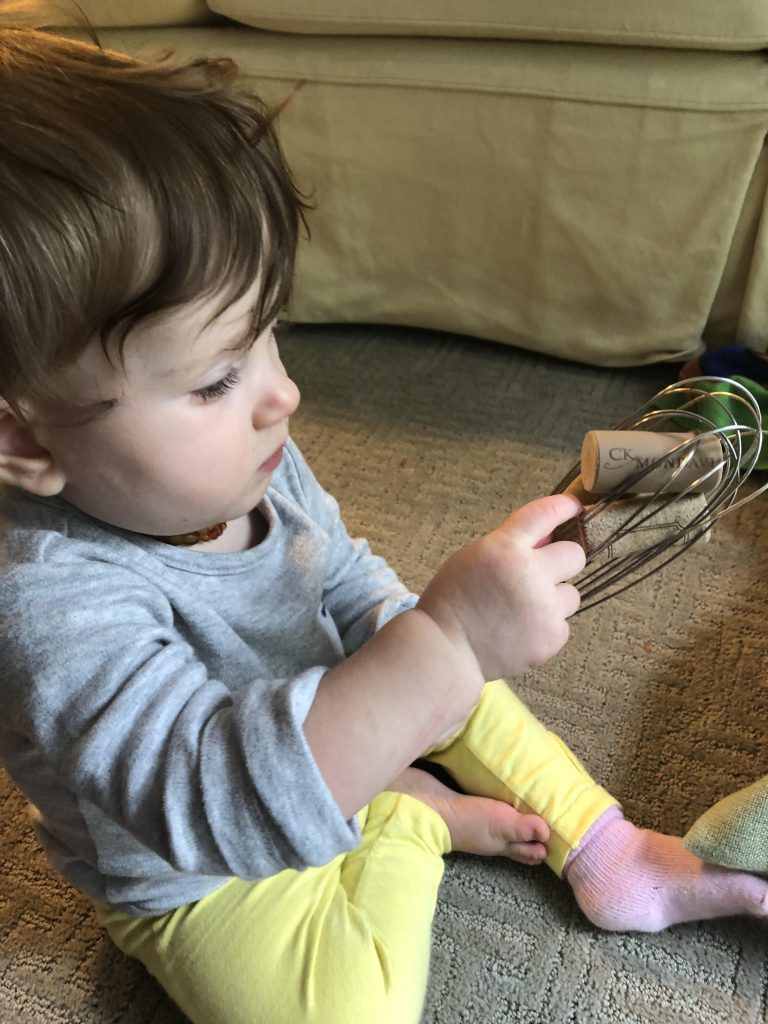
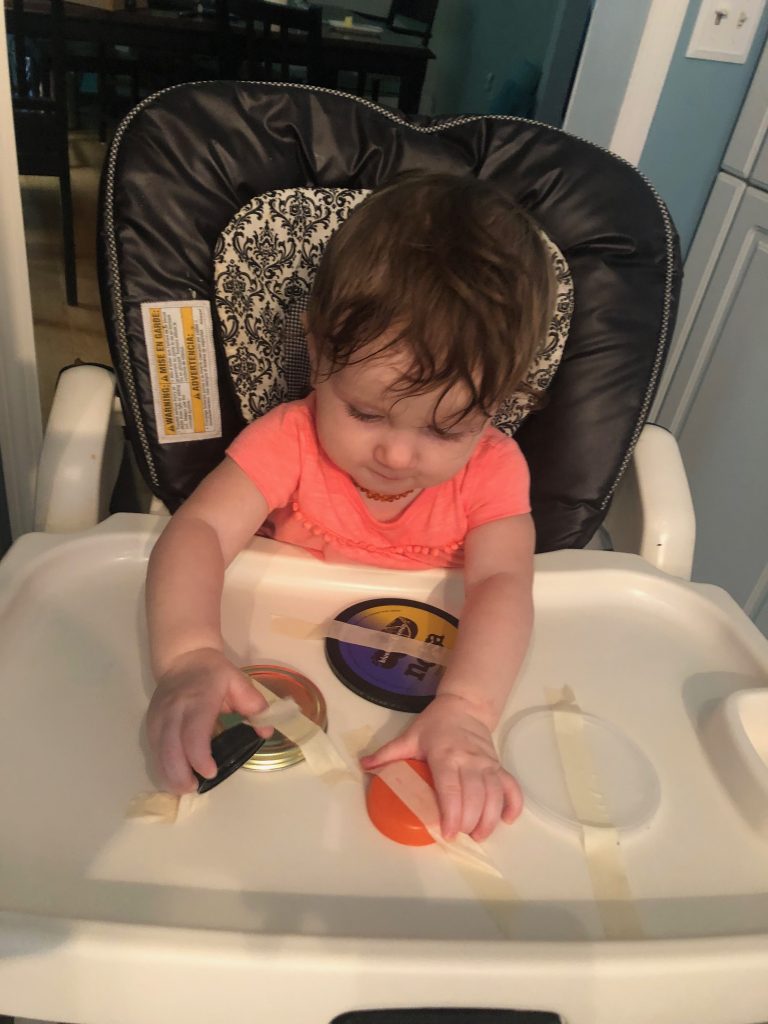
Fine Motor Activities for 9-12 Months of Age
One of the benefits of Baby Led Weaning is that they need to use their hands which supports the development of the pincer grasp. However, even if you’ve chosen to do Traditional Weaning you can still let them practice using their hands to eat.
With purees, you can let them play with the utensil once you’ve fed them, and let them “play” with the puree. Let them get messy!
Once they’re ready, introduce puffs, rice rusks or other food that they can practice picking up. I’ve seen many children flourish when regularly allowed to practice self-feeding.
Other ideas for activities that you can begin working on at this age:
- Playing with play dough (or real dough!)
- Putting a puzzle piece in the correct place.
- Give them a musical instrument like a maraca or a xylophone.
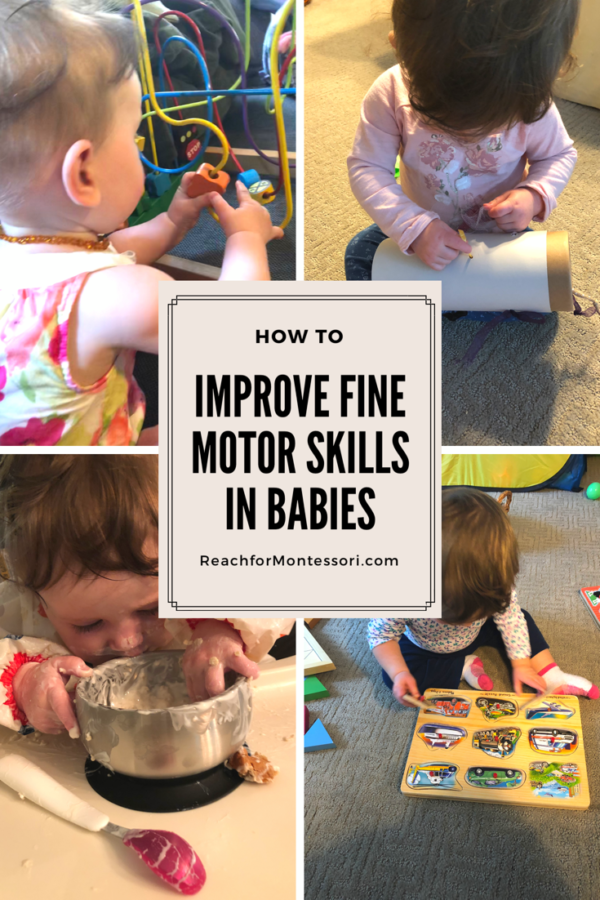
Most of these activities can be done with things around the house and are easy to do. You’ll be surprised how quickly these skills will develop when you give your child the opportunity to use their hands to play and explore.
If you’ve done some of these activities with your child, please share how it worked out! Once your child is a little older, check out Sue’s 35 Pincer Grasp Activities for Toddlers and Preschoolers!
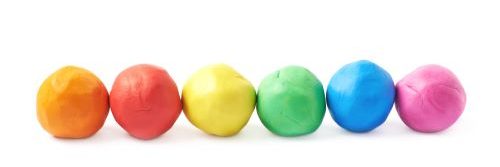
Great and informative post. I’ll like to read any post you have on 18months above if you have them here.
Thanks.
https://reachformontessori.com/2017/09/29/18-month-old-montessori-child/
My very first post, actually! Terrible photography, here you go! There is a post coming out this morning geared toward young toddlers, as well 🙂
Great tips! I found that self-feeding really helps because my kids were always a very motivated to get that food in their mouth!
Thanks! If there is one thing babies are motivated to do, it’s put things in their mouths! Might as well be something edible!
This is very relevant and helpful for me. I’ll remember these for my littles!
So glad you found the article helpful!
I have a little 2 month old at home and am in need of twos! I also keep getting asked what to get him for christmas. This will be a helpful guide for sure!
I’m glad you found it helpful!
Great ideas for the gift, I will buy when my newborn baby turns 1 year. I think all of these gift would suit 1 year old baby?
You can help strengthen your baby’s muscle development and motor skills with simple activities and practice.